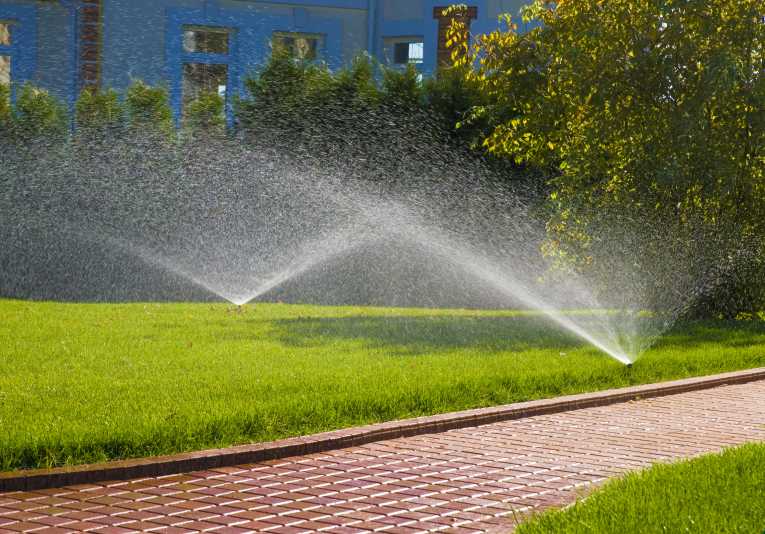West Palm Beach was set to run out of water today according to estimates, but homeowners have continued to excessively water lawns despite the implementation of emergency restrictions. The city, suffering from a record drought that has cut off its water supply from Lake Okeechobee, implemented mandatory once per week outdoor watering restrictions to reduce demand to make up for the lost supply. The city trained police and other city employees to enforce the restrictions, which carry fines of $75 for the first offense, $125 for the second, and $500 for the 3rd and beyond. In the first week of enforcement, 53 citations were issued.
But demand remains unchanged because residents have not complied either intentionally or unintentionally. Some simply aren't aware of the restrictions. Others, as reported by a local news channel, have simply chose to ignore the restrictions out of fear that their yard will die and adversely impact property values. The calculation is simple: the fines cost less than the costs of replacing a lawn and reduced property value.
The mayor, Jeri Muoio, is exasperated at the non-compliance, stating in a recent interview that, "Our water consumption has not gone down and we need you to conserve water."
Excessive outdoor water use is not uncommon. A study by the American Water Works Association Research Foundation found that, in the 12 cities studies, outdoor water use far exceeded indoor water use. This fact gets environmentalists all riled up. The question they ask is: why are we using this much potable water for a non-essential use such as lawn watering? To which the typical homeowner will respond: because maintaining a green lawn and healthy landscape is critical to property values which, today, are increasingly important.
Outdoor water use is considered a non-essential use. Essential uses include drinking and fire fighting. During emergencies, non-essential water demand is typically cut drastically to ensure supply for essential uses. The more progressive water districts will have conservation programs in place to continually try to minimize non-essential demand and maximize the efficiency with which water is used for essential uses.
But, for the most part, the struggle over non-essential and essential uses boils down to excessive lawn watering versus everything else. Outdoor water use in some residential accounts in West Palm Beach exceed 1 million gallons per month, according to local news reports, which is more than some hotels in the district.
The reasons for this excessive use are numerous but the primary culprits include a fundamental misunderstanding of the water needs of grass, an astounding naivete about the finite nature of water supply, and, perhaps most importantly, the widespread use of in-ground irrigation systems that operate on timers irregardless of climactic conditions. Accordingly, water suppliers have begun conservation programs that include educational components, voluntary and mandatory watering restrictions, and conservation rate pricing to reduce demand.
But the results have been mixed at best. Water demand actually increased in West Palm Beach after their conservation program was implemented in 2009. And, in many cases, water suppliers will include only education-based initiatives in their conservation programs mainly due to the political infeasibility of passing lawn watering restrictions and conservation pricing programs during non-emergency times. Realizing this, states have begun passing water conservation laws that include demand reduction targets and required actions for meeting those targets.
Even restrictions and rate hikes, like in the case of West Palm Beach, are not enough to deter excessive outdoor water use. Enforcement is costly and lax, and homeowners choose to pay fines and higher rates to keep a green lawn, out of fear their property values will plummet or, worse, they will fall behind the Jones'.
West Palm Beach is in trying to overcome the scourge that is excessive lawn watering. The city is pondering its next move. Though the city received rain over the weekend and is purchasing water from a regional supplier, the situation remains dire. The water will not run out today but it could in the next few months if demand remains the same and the rain holds off. Officials are eyeing Phase 4 of their drought plan, which entails a total ban on outdoor watering, rationing, and pumping from an emergency well field. If this happens, the battle over lawn watering could get real interesting. The water industry will be watching closely.
Top Image Credit: © Alex Petelin










